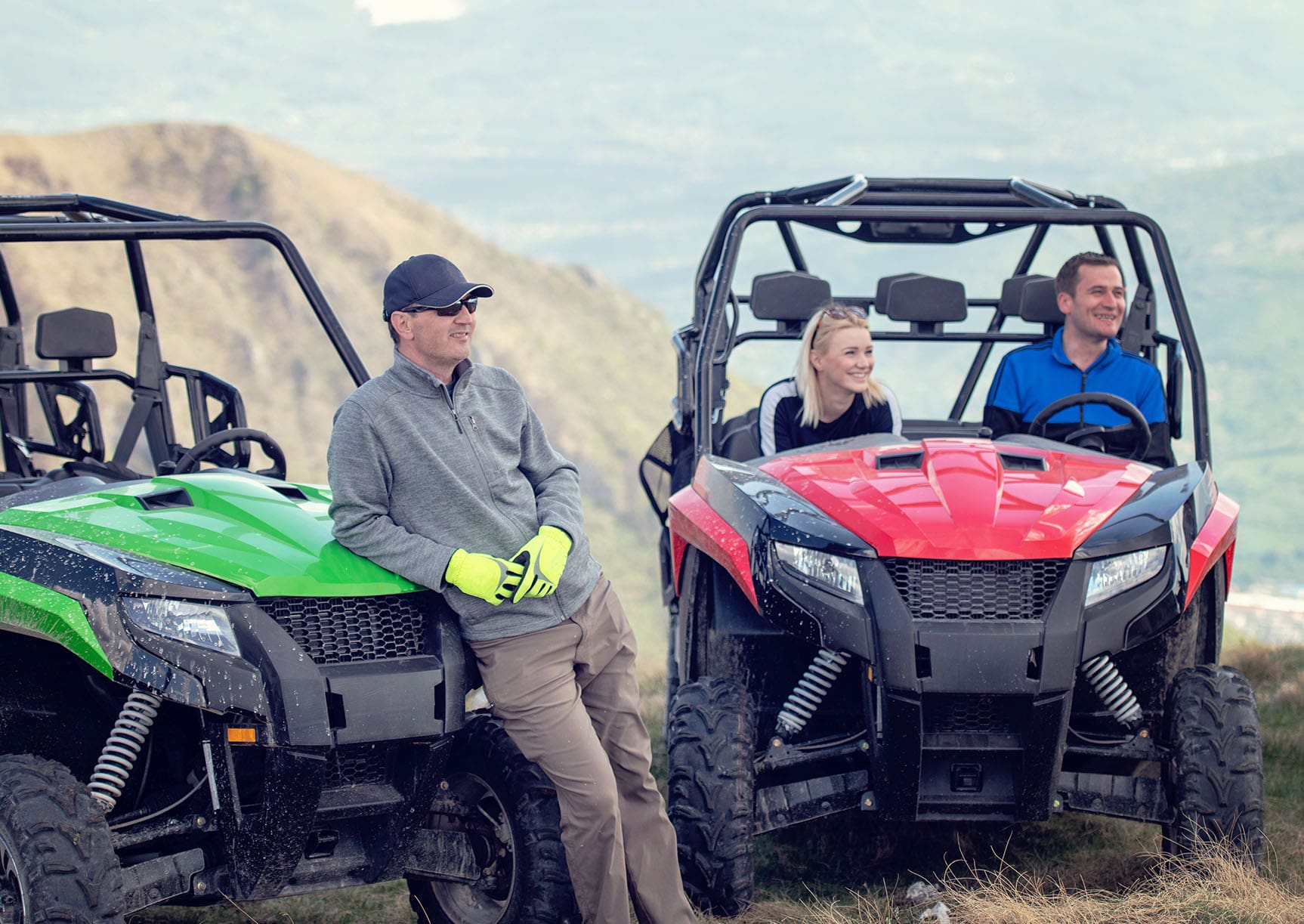Whether you’re planning your first RV trip or living life on the road full-time, making sense of RV insurance is a key part of protecting both your investment.
Keep reading as we break down everything you need to know about recreational vehicle insurance—from what it covers to how to choose the right policy.
What is RV insurance?
RV insurance is a specialized policy designed to cover recreational vehicles, like motorhomes, coaches, camper vans, travel trailers, and fifth wheels. Unlike standard auto insurance, RV coverage accounts for both the driving and living aspects of your vehicle. While some states require minimum liability insurance for motorized RVs, the right policy goes well beyond the basics.
Doesn’t my car or home insurance already cover my RV?
It’s a common question we get. While your auto insurance might provide some liability coverage if you’re towing a travel trailer, it usually won’t cover damage to the RV itself or its contents. And home insurance? That typically doesn’t apply once the RV, or any ATV, UTV, or golf cart, leaves your property.
If you own a motorhome or spend significant time living in your RV, you’ll likely need a separate RV insurance policy to cover the living space, personal belongings, and any specialized repairs.
What does RV insurance cover?
Whether you’re buying your first policy or reassessing your coverage for a big trip, it’s important to understand exactly what RV insurance typically includes. Policies can be tailored to your specific needs—some offer basic protection, while others are built for more extensive travel or higher-value vehicles.
Here’s a breakdown of what RV insurance policies commonly cover and some options you might want to consider.
- Liability coverage – This covers damage or injuries you may cause to other people or property while driving your RV. It’s often required by law and forms the foundation of most insurance plans.
- Collision coverage – Helps pay for repairs or replacement if your RV is damaged in a crash, regardless of who’s at fault. This is especially important for larger RVs that can be costly to repair.
- Comprehensive coverage – Covers non-collision events like fire, theft, vandalism, floods, or hail damage. Think of comprehensive coverage as protection for the “what-ifs” that can happen even when your RV is parked.
Optional add-ons may include:
- Personal belongings protection – Since RVs often double as homes, this coverage helps protect clothing, electronics, kitchen gear, and more from theft or damage.
- Roadside assistance –Roadside assistance can include towing, jump-starts, fuel delivery, and lockout services—especially helpful in remote areas.
- Vacation liability – Covers bodily injury or property damage that occurs when your RV is parked and being used as a residence (like at a campground).
- Emergency expense/trip interruption – If your RV breaks down far from home, this helps pay for temporary lodging, transportation, and food while you wait for repairs.
- Pet injury coverage – Some policies offer pet insurance coverage if your furry family member is injured in an accident while traveling in the RV—an often-overlooked detail for pet parents on the go.
- Total loss replacement vs. actual cash value – With total loss replacement, you’ll get a new RV if yours is totaled (within limits), rather than the depreciated value—ideal for new purchases.
RV insurance for different types of users
Not all RVers travel the same way or require the same level of protection. The insurance that works for someone who hits the road a few weekends a year might fall short for someone living in their RV full-time. So, if you’re renting an RV or only using it during certain seasons, you’ll need a policy that fits your usage pattern without overpaying for coverage you don’t need.
Here’s a look at how insurance needs can vary depending on how you use your RV:
- Occasional users/weekenders – A standard policy that includes basic liability, collision, and comprehensive coverage may be enough if you only travel a few times a year.
- Full-time RVers – Living on the road full-time means you need a policy that acts more like homeowner’s insurance, with extended liability, contents coverage, and full-timer liability.
- Rental RVs – If you rent out your RV or rent one yourself, make sure you’re protected with rental-specific coverage. Just note that traditional RV rental insurance policies often don’t apply during commercial use.
- Seasonal storage – Some insurers let you adjust your coverage or suspend certain protections during off-season months to save money. Just make sure comprehensive protection remains in place.
How much does RV insurance cost?
RV insurance doesn’t come with a one-size-fits-all price tag. The cost can vary significantly based on what kind of recreational vehicle you own, how it’s used, and where you garage it when not in use.
Whether you’re a weekend traveler, a snowbird, or a full-time nomad, understanding the cost drivers behind your premium can help you budget more effectively and avoid surprises.
Here’s what to expect when it comes to RV insurance pricing:
- Travel trailers: Starting around $250/year. Travel trailer insurance typically costs less because, as tow-behind recreational vehicles, they’re smaller and don’t have an engine.
- Class B motorhomes: Typically fall in the mid-range for insurance costs. Also known as camper vans, Class B motorhomes are more spacious, easier to park, and offer some creature comforts. For those reasons, expect to pay more for motorhome insurance than for travel trailers.
- Class C motorhomes: Built on a truck chassis with a distinctive over-cab sleeping area, these RVs are a step up in size and luxury from Class B models but still include many home-like features. Their insurance premiums usually fall between Class B and Class A.
- Class A motorhomes: Can range from $2,000 to $4,000/year or more. These are large, luxury RVs built on heavy-duty frames, often with full amenities like kitchens, bathrooms, and multiple sleeping areas. They also cost more to repair or replace, making them much more expensive to insure.
Besides the type, size, and value of a recreational vehicle, RV insurance costs also depend on:
- How often you use it – Full-timers or frequent travelers tend to pay more than occasional users due to higher exposure and risk.
- Your driving record – Just like with car insurance, a clean driving record can earn you better rates, while tickets or accidents can push costs up.
- Where it’s stored – RVs stored in secure, covered facilities may cost less to insure than those parked on the street or in high-risk areas.
- The state you live in – Insurance regulations and average rates vary widely by state, so your location plays a significant role in your premium.
- Discounts for bundling with other policies (like auto or home), being a safe driver, installing anti-theft devices, or joining RV clubs and associations.
Questions to ask before buying RV insurance
Choosing the right RV insurance isn’t just about picking a provider. It’s also about asking the right questions before you commit. Whether you’re reviewing quotes or chatting with an agent, knowing what to ask can help you avoid coverage gaps and make sure you’re getting the best value for your needs.
Before you commit, ask these key questions:
- What’s included in basic coverage? – Not all “basic” plans are created equal. Clarify what’s actually protected and what’s considered an add-on.
- Are my belongings covered? – Ask about limits and exclusions, especially for higher-value items like laptops, appliances, or appliances.
- What’s the deductible? – A lower deductible means less out-of-pocket cost after a claim but it often means a higher monthly premium.
- Does the policy support full-time RV living? – If your RV is your home, confirm that your coverage reflects that, including liability, belongings, and long-term use.
- How is towing handled? – Even if you have roadside assistance, the details surrounding towing services matter. Ask how far they’ll tow you, where they’ll take your RV, and what’s included in an emergency.
- What happens if my RV is totaled? – Ask whether you’d get the actual cash value, a replacement, or a payout based on a predetermined amount.
- How is the claims process managed? – A smooth, digital-first claims experience can make a stressful situation a lot easier to handle.
- Can any of this be tax-deductible? – If you live in your RV full-time or use it for business, some of your insurance costs might be deductible. It’s a good idea to ask your insurer, and check with a tax pro, just to be sure you’re not missing out on potential savings.
Why work with The Baldwin Group for your RV insurance?
Remember, the best RV insurance protects your vehicle, your belongings, and your liability but the cost depends on things like how often you travel, where you store your RV, and the type you own.
A low-cost policy might look good up front, but it can mean limited coverage or high deductibles. If you’ve invested in your RV lifestyle, it’s worth making sure your insurance is just as solid.
Let The Baldwin Group be part of your travel planner toolkit. We’ll help keep you covered while you map out your next adventure.
- More options, better rates – We work with a wide network of trusted insurers to give you access to competitive rates and hidden discounts.
- Coverage that fits you – We match your travel habits and budget to the right policy so you get the protection you need, without paying for what you don’t.
- Shopping done for you – Skip the hassle of comparing quotes. We do the research, explain your options, and help you make a confident choice.
Want a personalized RV insurance quote? Choose what works best for you:
- Call us at 813.939.5288
- Give us some info online and let’s get moving.
This document is intended for general information purposes only and should not be construed as advice or opinions on any specific facts or circumstances. The content of this document is made available on an “as is” basis, without warranty of any kind. The Baldwin Insurance Group Holdings, LLC (“The Baldwin Group”), its affiliates, and subsidiaries do not guarantee that this information is, or can be relied on for, compliance with any law or regulation, assurance against preventable losses, or freedom from legal liability. This publication is not intended to be legal, underwriting, or any other type of professional advice. The Baldwin Group does not guarantee any particular outcome and makes no commitment to update any information herein or remove any items that are no longer accurate or complete. Furthermore, The Baldwin Group does not assume any liability to any person or organization for loss or damage caused by or resulting from any reliance placed on that content. Persons requiring advice should always consult an independent adviser.






